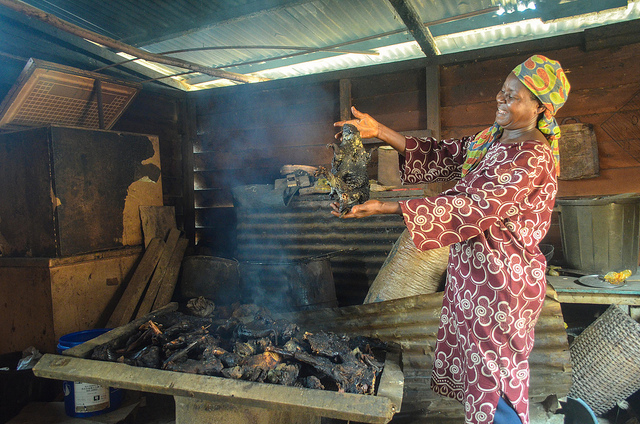The Struggle for Women’s Empowerment in Gabon
 Home to about 1.7 million people, the small West African country of Gabon is wealthy from oil exports and boasts impressive environmental diversity. An authoritarian government and family dynasty led by President Ali Bongo keeps wealth in its hands and contributes to high levels of inequality. Under the Bongo dictatorship, many legal and cultural obstacles remain that challenge and limit women’s empowerment in Gabon.
Home to about 1.7 million people, the small West African country of Gabon is wealthy from oil exports and boasts impressive environmental diversity. An authoritarian government and family dynasty led by President Ali Bongo keeps wealth in its hands and contributes to high levels of inequality. Under the Bongo dictatorship, many legal and cultural obstacles remain that challenge and limit women’s empowerment in Gabon.
According to the U.S. State Department’s Human Rights Report for Gabon released in 2017, Gabon provides limited legal rights for women, and when laws do exist, they are poorly enforced. Marital rape remains legal, and women are often too ashamed or afraid to report a rape to the local police. Women’s empowerment in Gabon is promoted by several NGOs that work with the government to respond to incidents of domestic violence and harassment. Some positives include a very low rate of female genital mutilation (FGM), which is prohibited in Gabon.
While FGM has not taken root in the country, other traditions like polygamy are still practiced and act as a barrier to women’s empowerment in Gabon. Current laws limit the number of wives a man can have to four, and despite full legal rights on paper, many women still suffer discrimination based on customary laws relating to marriage, divorce and inheritance.
According to Amnesty International, the promise of gender equality in Gabon’s constitution is not borne out by the country’s laws and legal practices. The legal code continues to discriminate against women in child custody and crucial elements like the minimum age of marriage for women and girls, significant barriers to women’s empowerment in Gabon. Female domestic workers also suffer high levels of sexual harassment and have fewer avenues to legal help than other women suffering abuse in Gabon.
The World Bank is investing in a project to foster women’s business development and women’s empowerment in Gabon. The Investment Promotion and Competitiveness Project seeks to boost female employment, as the current female unemployment rate is at 27 percent — 11 percent higher than the male rate. The project will create a one-stop shop to register businesses with a central web-based database, empowering female entrepreneurs to receive training, access financial services and open small and medium-sized businesses. Projects like these are a key part of alleviating poverty for women in Gabon and helping them achieve empowerment.
– Giacomo Tognini
Photo: Flickr
